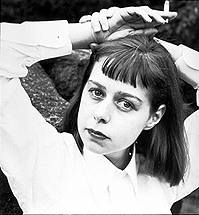Golden Books were popular in the 1950s, sold in grocery
stores where children could clamor for them from the child seat of the cart. I remember being drawn to the rack of shimmering
children’s books, mostly reconstituted fairy tales free of copyright and
therefore an easy killing for any publisher who had distribution. My mother would frequently bring one home from
her weekly shopping and thus landed in my lap one day The Ugly Duckling.
Most are familiar with the rudiments of the story—a misplaced
egg, a youngster who doesn’t fit in, a trial of early rejection that leads to a
safe blossoming later. Except when it
doesn’t. Fairy tales are old—before the printing press old—teaching stories meant to be handed down from generation to generation for
the purpose of conveying the broad rules of culture and society. To one degree or another, they teach fitting
in—that each individual must give up something in order to achieve balance within
the whole. The restoration of balance
arrives after a trial—a test or banishment that reveals the cultural constructs
of the village, clan, and tribe and therefore conforms the child to his or her
adult role.
My growing up coincided with the classic Disney years noted
for bringing back the dark side of the collective unconscious through the
unstinting portrayal of the terrifying side of fairy tales—the evil queen, the
child-eating troll, the handsome prince who was a secret monster, the witch
disguised as the sweet mother. Though
sanitized in their Golden Book versions, fairy tales historically had a deeper
purpose—to expose and thus give warning about the animal nature of human beings
and the dark side buried deep in our genes.
We are capable of murder, capable of devouring our own children.
The Ugly Duckling is a story about more than a misplaced
child. It is the story of a mother’s
disintegration and collapse. For if her
child is different, the mother, too, pays a terrible social price for having
produced a nonconforming threat to the stability of the tribe. She either surrenders her child to the mob or
is similarly ostracized. Having a
different child forces the issue of survival.
In the beginning, the mother of a nonconforming child will
rise to her child’s defense—oh, she’ll grow out of that; oh, she’s a late
bloomer; oh, it’s a phase. But over
time, the persistent hammering of the whole will batter down the one and the
issue is forced—do you want to go down with your child or should you cut loose
and save yourself? It takes an
exceptionally strong woman to hold on when those winds blow. Like the harried mother who chased her ugly
duckling from the barnyard out into the world to let come whatever may, my
mother was unable to protect me.
While my childhood coincided with Disney in the Fifties, my
teen years matched the welling Civil Rights Movement of the 1960s. By then, television had become the primary
cultural teaching tool and fairy tales were sublimated in favor of the evening
news. Each evening I watched Negroes,
the word used then, torn from buses, beaten off stools at lunch counters,
attacked by police dogs, pushed, spat upon, and jeered by white attackers, washed
away by fire hoses, rounded up by police and jailed, and outright murdered for
asking to be equal. Asking. Demanding would come later. And I was terrified. If they did this to people just because of
the color of their skin, I wondered, what would they do to me if they
discovered I was queer, homo, fag, dyke, fairy, all the terms of the day and
still the standard pejoratives? I
believed I would be beaten, hosed, have dogs set upon me, murdered. Why wouldn’t I so believe for the evidence
was constantly before me—this is what you get for nonconforming.
My mother by then had made her choice—I was going down
alone. But not without a daily
lashing. My growing sexuality had become
difficult to contain and I struggled to hide who I was but it was impossible to
conceal my glaring difference no matter how much she berated me for hair that
was not straight or flipped perfectly, clothes that did not match Seventeen
Magazine, my indifference to boys, the fact that the other mothers noticed and
heckled her. Each time she was accosted
at bridge club or Altar Society, I received her vicious double down at home. My deviation had placed her outside the circle
of her peers and she would not forgive me for that. She pushed me into the world alone and
without a champion, without a way back.
And like the Ugly
Duckling, I learned to survive every attack though each took its toll until I
found my true family—the faggots, drag queens, dykes, lesbos, queers, butches,
fems, fudgepackers, fluffs, poffs, butt pirates, ass wankers, village people,
pussy eaters, homos, the list is endless.
They are the people who know me, who love me, who welcome me, who care
about me, who come to my aid, who celebrate my accomplishments, who totally
understand the achievement of living as an out queer in republican, right wing christian
America. I owe my life to them. I hope never to fail them. I will protect them as they have protected
me. For every child out there who hears republican candidates on television berate him, abuse him, demean him, offer him up to the mob as a blood payment for a vote, I promise you I will fight for you.


No comments:
Post a Comment